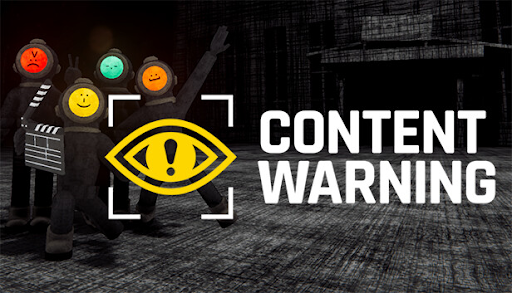“Priscilla,” directed by Sofia Coppola and based off of Priscilla Presley’s autobiography “Elvis and Me,” begins with Cailee Spaeney’s character as a young teenager in Germany. She swiftly becomes infatuated with superstar Elvis Presley while he is serving in the armed forces after the 24-year-old inexplicably pays her an exorbitant amount of attention. After a few years of pining, Elvis takes Priscilla back with him to Graceland––his Memphis estate. Throughout the rest of the movie, we take a deep dive into their passionate and unbalanced relationship, following Priscilla’s grapple with her own lack of identity and loneliness in their marriage, until she finally begins to learn who she is without her husband.
As a Sofia Coppola fan and amateur Elvis Presley historian, I desperately wanted to love “Priscilla”; however, it came as a shocking disappointment. The movie started off strong, but lost complete direction when our protagonist moves to Graceland. The house becomes something of a personal prison in which we are forced to watch her roam for a good hour and a half, waiting for her husband to prioritize her in their marriage. Even though the audience is always observing from Priscilla’s point of view, we don’t see her moving towards the decision to leave him. Her change in attitude comes as more of an awkward cut, and only really lasts for about five minutes.
My largest complaint is how badly the movie missed the mark in giving Priscilla her own voice. Culturally, Pricsilla does not exist without Elvis. Throughout their marriage and beyond, he has defined her importance and given her relevance. The movie’s intended goal was to tell Priscilla’s story, but it just read as yet another Elvis deep dive. Rather than portraying her as a full person with complex feelings, “Priscilla” solidifies her as a side character in a complex life story. Her entire personality revolves around Elvis. When is he coming home? Is he with another woman? Does he still like me? As an audience, we were given no opportunity to view her as a person, and even in the last five minutes of the movie after she leaves Elvis, when her character gains little independent personality, her life once again seemingly begins to revolve around a new man. The entire movie was frustrating. It was clear that there was a story to be told, but through the heavy layers of aesthetic and lack of plot resolution, the point of the film gets lost.
“Elvis,” 2022, and “Priscilla,” 2023, though centered around the same couple, are vastly different movies, and it’s no surprise: Baz Luhrman and Sofia Coppola are vastly different directors.
Known for box office hits such as “The Great Gatsby” and “Australia,” Lurhmann has achieved major success as one of the most famed Hollywood directors of modern times. However, his heavy-handed techniques are not always a huge crowd pleaser. Over the years, Lurhmann has received pushback from critics and viewers alike for his over-the-top style and notoriously “loud” films. In a 2016 review of “Australia,” The Guardian compared watching one of his movies to “having a crater-sized parcel of glitter dropped on your head.” Between the glitz, glamor, and high-velocity of his movies, it’s hard to focus on what the actual message is, and I’m often left with a pounding headache and whiplash after leaving the theater.
On the other end of the spectrum, Sofia Coppola’s directing style is effortless. The queen of “the sad girl drama,” Coppola has time and time again proven herself as one of the most important female directors of the time. Through films like “The Virgin Suicides,” and “Lost in Translation,” she explores heartbreak, loneliness and vulnerability through a visually stunning camera lens, instating a sense of unresolved longing. In every movie she generates, it is clear she has a purpose.
Though at times overly flashy, Lurhmann’s directing style was well suited for this particular project. Elvis was a gaudy guy; between his kitschy outfits, maximalist interior decorating and indulgent lifestyle, he definitely did not stray away from garishness, making Lurhmann an excellent choice of director. Particularly in the Las Vegas portion of the movie, I appreciated the visual dramatics, and didn’t even mind Doja Cat’s oddly implemented rendition of “Hound Dog.” While the movie completely glorifies Elvis and never acknowledges his more villainous traits, that was to be expected: a biopic typically overlooks the more uncomfortable character flaws of our favorite cultural heroes. While Coppola retained her artistic style in Priscilla, the movie’s lack of substance was difficult to overlook.
Perhaps the comparison that garnered the most amount of attention however, was the differences in Elvis characterizations. With over 400,000 professional Elvis impersonators in operation today, Elvis is the most imitated person of all time, meaning all eyes were on Austin Butler and Jacob Elordi to nail the roll.
For Butler, becoming the King of Rock and Roll “was [his] entire life,” spending years away from his family in order to fully embody the King. “I wouldn’t talk to Anybody,” explained Butler in an interview with People Magazine, and when he did, it was as Elvis. He hired a movement coach, a singing coach, an acting coach, and a dialect coach. He covered his home with photographs of Elvis and played his voice on a loop. He ate, slept, and thought just like the man himself: “‘Elvis eats breakfast in the morning, what does that look like? What is the first thing he thinks about when he wakes up in the morning? How does he brush his teeth at night?’” Afraid of misrepresenting arguably the most iconic figure in pop culture history, he would “wake up every day around three or four in the morning” in fits of terror according to Billboard Magazine. To this day, in interviews and talk shows, Butler slips in and out of the deep southern accent.
In contrast, Jacob Elordi, co-star of the 2023 Priscilla movie, admitted to Variety Magazine that going into the filming of the movie, “the most [he] knew of Elvis was in ‘Lilo & Stitch.’”
Despite their differences in enthusiasm, some fans are crediting Elordi with a more accurate portrayal, and are joking about Butler’s dramatic take on the role. Priscilla Presley herself, reportedly praised Elordi for his accurate portrayal. Personally, I felt the difference in impressions suited the respective tones of the movies. Butler’s more exaggerated mannerisms flowed well with the blockbuster nature of “Elvis,” while Elordi’s more understated acting style worked cohesively with Coppola’s subtle film.
Whether or not Butler or Elordi was the better Elvis, the more important distinction when comparing two biopics is which one tells the person’s story with more conviction. In this case, “Priscilla” became just another Elvis movie, yet again completely glossing over Priscilla without her husband and solidifying her as just a prop in his gigantic world.
hk/yl/jy/ew
For more breaking news and photos, follow The Wingspan on Instagram and Twitter @CHSWingspan.




